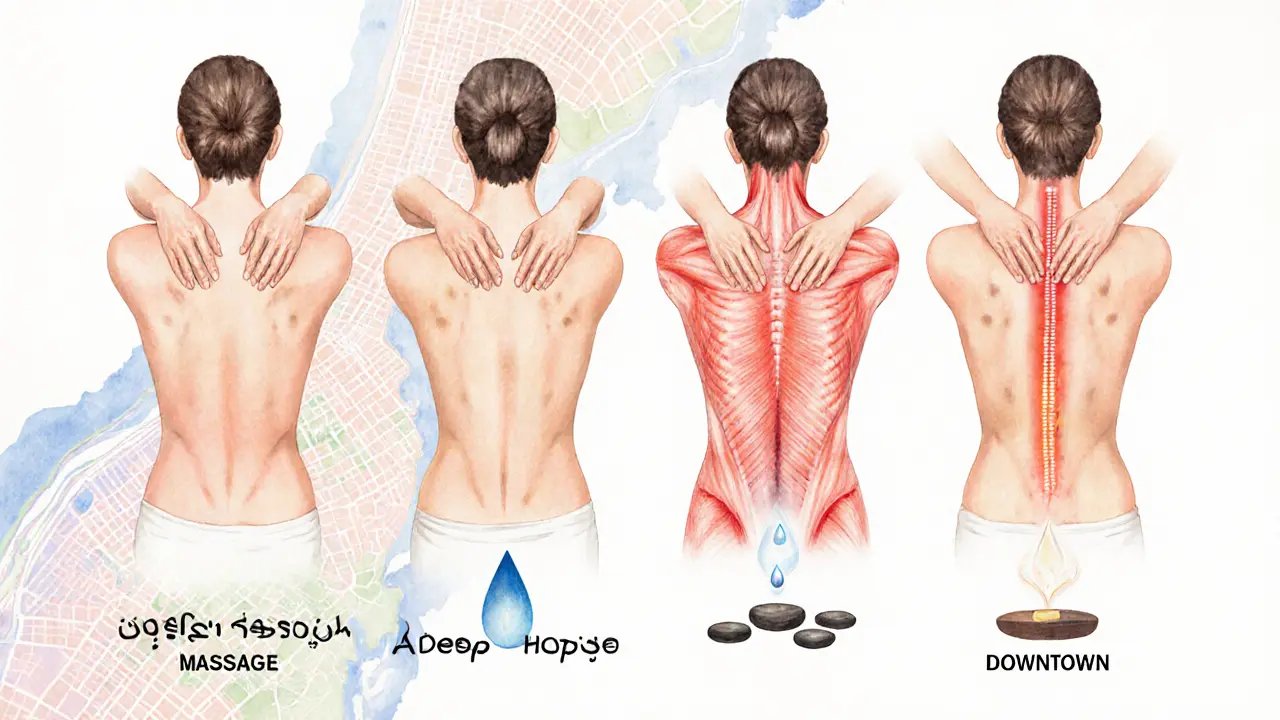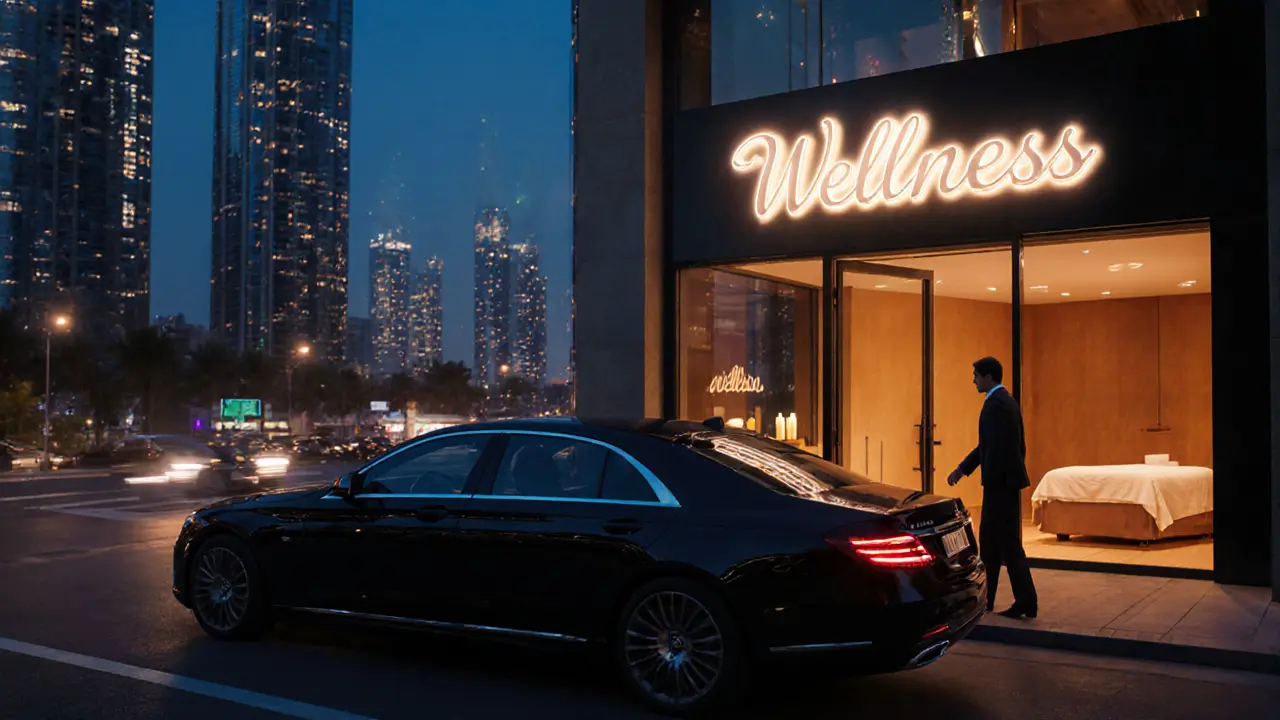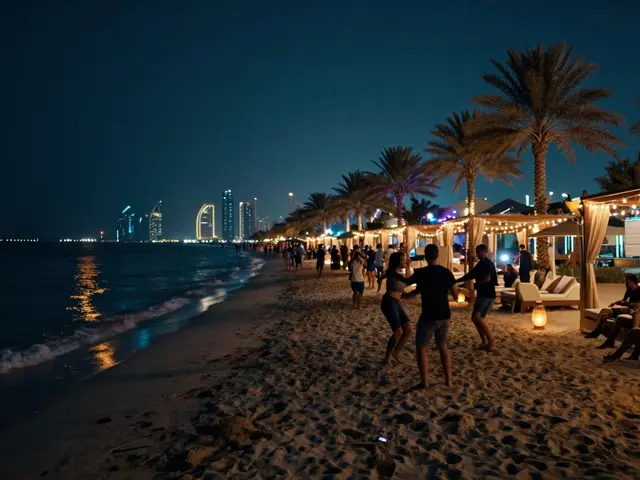When you’re hunting for Massage Dubaiprofessional therapeutic massage services offered throughout Dubai, the city’s fast‑paced lifestyle means stress relief is a top priority.
Key Takeaways
- Dubai’s top stress‑relief massages include Swedish, Deep Tissue, Aromatherapy, and Hot Stone.
- Typical session prices range from AED 200 to AED 600, depending on type and location.
- Most reputable spas are located in Dubai Marina, JBR, Al Barsha, and Downtown.
- Look for Dubai Health Authority (DHA) licensing and COVID‑19 hygiene certifications.
- Booking apps like SpaFinder and direct phone calls give the quickest access to same‑day offers.
Direct Answer
If you need immediate stress relief, book a 60‑minute Deep Tissue or Aromatherapy massage at any licensed spa in Dubai Marina or JBR. Expect a soothing environment, a certified therapist, and a price around AED 300‑400 for a one‑hour session.
Comprehensive Guide to Stress‑Relief Massage in Dubai
Imagine stepping out of a bustling office, slipping into a cool, scented room, and feeling tension melt away within minutes. That’s the promise of a good massage, and Dubai’s wellness scene has stepped up its game with special offers tailored for busy professionals.
Definition and Context
Stress‑relief massage combines manual techniques that target muscle knots, improve circulation, and trigger the body’s relaxation response. In Dubai, the term often covers a range of styles, each designed to address specific stress triggers-whether it’s a tight neck from hours at a desk or overall fatigue from a hectic travel schedule.
Benefits of Stress‑Relief Massage
- Reduces cortisol levels, the hormone linked to chronic stress.
- Improves blood flow, helping nutrients reach fatigued muscles.
- Enhances sleep quality, a common problem for shift workers.
- Boosts mood through the release of endorphins.
- Supports better posture by loosening tight shoulders and back.
One client at a downtown spa told us, “After a week of back‑to‑back meetings, a 45‑minute Swedish massage was the only thing that let me feel human again.” Real stories like this illustrate why the market is flooded with promotions.

Types of Massage Available in Dubai
Below are the most popular styles you’ll encounter when searching for Massage Dubai offers:
- Swedish MassageA gentle, full‑body technique that uses long strokes, kneading, and rhythmic tapping. - Ideal for beginners and those seeking overall relaxation.
- Deep Tissue MassageFocused pressure on deeper muscle layers to release chronic tension. - Best for athletes or anyone with persistent knots.
- Aromatherapy MassageCombines essential oils with massage strokes to enhance mood and calm. - Perfect for stress tied to anxiety.
- Hot Stone MassageSmooth heated stones placed on the body to soften muscles. - Great for deep relaxation on cooler evenings.
- ReflexologyTargeted foot pressure points that correspond to body organs. - A convenient option if you’re short on time.
How to Find Massage Services in Dubai
Finding the right spot is easier than you think. Follow these steps:
- Check the Dubai Health AuthorityRegulatory body that licenses wellness establishments. website for a list of certified spas.
- Focus on neighborhoods with high foot traffic and corporate offices: Dubai Marina, Jumeirah Beach Residence (JBR), Al Barsha, and Downtown Dubai.
- Use mobile apps like SpaFinderBooking platform that aggregates spa deals across UAE. to compare prices and read verified reviews.
- Look for limited‑time promotions - many spas run “Mid‑Week Stress‑Relief” or “Friday Night Unwind” packages that bundle a massage with a herbal tea.
- Call the spa directly to ask about therapist certifications, oil preferences, and COVID‑19 safety measures.
What to Expect During a Session
First, you’ll fill out a short health questionnaire - therapists need to know about allergies, recent injuries, or pregnancy. Then you’ll be led to a private treatment room where soothing music and dim lighting set the mood.
The therapist will discuss your stress points, adjust pressure levels, and may incorporate aromatherapy oils like lavender or eucalyptus. A typical 60‑minute session ends with a few minutes of gentle stretching and a glass of infused water to re‑hydrate.
Pricing and Booking
Prices vary by location, therapist experience, and massage type. Here’s a quick snapshot:
- Swedish (30min) - AED 150‑200
- Deep Tissue (60min) - AED 300‑450
- Aromatherapy (60min) - AED 350‑500
- Hot Stone (90min) - AED 550‑700
Most spas accept credit cards, PayPal, and Apple Pay. For same‑day slots, use the spa’s online calendar or call the reception. If you’re booking a group session (e.g., corporate wellness), ask for bulk‑discount rates - many places offer 10% off for groups of five or more.

Safety Tips
- Verify the spa’s DHA license - the number is usually displayed at the reception.
- Check that linens are freshly laundered and that therapists wear gloves when handling oil containers.
- Avoid deep‑tissue work if you have recent fractures or severe skin conditions.
- Communicate pressure preferences clearly; a good therapist will adjust instantly.
- Stay hydrated before and after the session to help flush out toxins.
Comparison Table: Massage Dubai vs. Yoga Sessions in Dubai
| Aspect | Massage Dubai | Yoga Sessions |
|---|---|---|
| Primary Goal | Immediate muscle relaxation & stress hormone reduction | Long‑term flexibility, breath control, and mindfulness |
| Session Length | 30‑90min | 45‑120min |
| Cost per Session (AED) | 150‑700 | 80‑250 |
| Physical Effort | Passive - therapist does the work | Active - you perform poses |
| Convenience | Same‑day drop‑in often available | Requires class booking, often limited spots |
FAQ: Your Questions About Stress‑Relief Massage Answered
How often should I get a stress‑relief massage?
What's the recommended frequency?
For most busy professionals, a 60‑minute session every two weeks balances cost with noticeable stress reduction. If you’re an athlete or have chronic tension, weekly sessions may be more effective.
Do I need to tip the therapist?
Tipping is customary in Dubai, especially at luxury spas. A 10‑15% tip based on the session price is standard.
Can I request a female therapist?
Yes - most reputable spas let you specify gender when you book. Mention your preference during the phone call or in the online booking notes.
What should I wear?
Wear comfortable, easy‑to‑remove clothing. Many spas provide gowns and towels, so you’ll be mostly covered during the treatment.
Are there any contraindications?
Avoid deep‑tissue work if you have recent fractures, severe skin infections, or uncontrolled hypertension. Always disclose medical conditions on the intake form.
Ready to Unwind?
Whether you’re stuck in traffic on Sheikh Zayed Road or wrapping up a late meeting at the Burj Khalifa, a quick massage can reset your body and mind. Check the latest Dubai Marina offers, book through SpaFinder, and give yourself the stress relief you deserve today.




Joshua Bastow
October 16, 2025 AT 17:41In reviewing the presented guide, one cannot overlook the conspicuous absence of a comprehensive cost‑benefit analysis that would substantiate the purported value of the listed massage services.
While the enumeration of price ranges appears adequate, the author neglects to contextualize these figures within the broader economic landscape of Dubai's wellness market.
Furthermore, the reliance on generic descriptors such as "top stress‑relief massages" fails to provide any empirical ranking or patient outcome data.
The inclusion of licensing information, although commendable, is presented without a discussion of enforcement rigor or consumer recourse mechanisms.
Additionally, the guide omits a critical examination of the variance in therapist qualifications beyond the superficial mention of DHA certification.
From a methodological standpoint, the article eschews any comparative framework that might illuminate the relative merits of Swedish versus Deep Tissue modalities for specific occupational stressors.
The omission of longitudinal studies or client retention statistics renders the advice superficial at best.
Moreover, the recommendation to utilize booking apps such as SpaFinder is made without acknowledgment of potential data privacy concerns inherent in third‑party platforms.
The author also overlooks the impact of seasonal tourism influxes on service availability and pricing volatility.
In terms of narrative structure, the guide oscillates between bullet‑point brevity and verbose exposition, resulting in an inconsistent reading experience.
One would anticipate a more rigorous approach to the topic, perhaps incorporating expert interviews or peer‑reviewed research, neither of which appears in the current composition.
The absence of a clear disclaimer regarding individual health contraindications further diminishes the guide's credibility.
It is also noteworthy that the piece fails to address alternative stress‑relief modalities, such as physiotherapy or mindfulness programs, which could provide a more holistic perspective.
Overall, while the guide offers a superficial snapshot of Dubai's massage offerings, it falls short of delivering the depth and analytical rigor that discerning readers require.
Future revisions should endeavor to integrate quantitative data, professional testimonies, and a balanced appraisal of both benefits and limitations.
Danielle Yao
October 23, 2025 AT 08:05Hey there! I just wanted to say that the guide does a great job of laying out the different types of massages you can find in Dubai, and the pricing info is super helpful. Also, the tip about checking the DHA license is spot‑on – safety first!
Rehan Rasheed
October 29, 2025 AT 21:29Alright folks, if you’re feeling the grind and need to smash that stress, book a Deep Tissue ASAP! The guide nailed the best spots – Dubai Marina and JBR have some killer deals right now. Grab that 60‑minute session, hydrate before, and you’ll walk out feeling like a new person. Trust me, the energy boost after a good massage is unreal. Let’s get those muscles loose and crush the next deadline!
Caleb Wingate
November 5, 2025 AT 11:53Interesting that the article doesn’t mention whether these spas accept walk‑ins for last‑minute appointments; many of us need that flexibility after a long day.
Robert Stoots
November 12, 2025 AT 02:17Wow! Great list – really helpful; I especially liked the note about checking for fresh linens... and the tip about using SpaFinder...:)
Ross Silvis
November 18, 2025 AT 16:41Sure, the guide is "helpful", but honestly who even needs another 300‑AED massage? You could just get a coffee for half that price.
Schechter Donovan
November 25, 2025 AT 07:05Oh, the guide sure sounds like a glossy brochure, doesn’t it? Still, the part about staying hydrated is actually solid advice – I’ll drink more water before my next session.
Anant Raj Bharti
December 1, 2025 AT 21:29The article’s precision in outlining the steps to verify a spa’s licensing is commendable; such clarity empowers clients to make informed decisions without undue hassle.
Meghan Horn
December 8, 2025 AT 11:53Love the guide! 😊
Franklin Lopez Silverio
December 15, 2025 AT 02:17Great rundown! If you can squeeze in a quick 30‑minute Swedish massage during lunch, you’ll feel refreshed for the afternoon meeting. Keep an eye out for those mid‑week promo codes – they can save you a decent chunk.